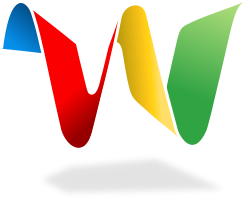A couple of weeks ago an entrepreneur I respect told me that Google had “lost it”. He pointed to the high profile failure of Wave, which was released to the general public in May last year as clear cut evidence. At the time, Wave was heralded as the future of communication. It was billed as a web-based platform and communications protocol that would merge the best features of e-mail, instant messaging and social networking, enabling users to communicate both synchronously and asynchronously. Its launch was hotly anticipated, invitations were even sold for up to $70 on auction sites.
But, despite this initial buzz the uptake was poor, and Google announced that it was going to suspend the product’s development in August, just 3 months after launch. As my friend said, surely this was clear evidence that Google was losing its way?
机 jī opportunity
I see the failure of Wave differently. Firstly, I respect the fact that Google is still failing with product launches, albeit a high profile one in this case. It appears that its Innovation Time Off programme (in which employees can use 20% of their time to work on any project that interests them) is still alive and kicking. It would be easy for Google to sit back on its laurels and focus on its core business, after all its most recent quarterly profit was $2.3 billion. But instead, it seems to retain its hunger: some launches end in failure but many of Google’s successes, such as Gmail, Google News, Orkut, and AdSense originated from Innovation Time Off.
Secondly, with the benefit of hindsight, I like the way that Google handled the ‘failure’ of Wave. It made the decision swiftly, even though it had sunk significant resource into the project, and looked at the residual value in the product before choosing to retire the code absolutely. Much of the code was handed to the Apache Software Foundation and turned into Wave-in-a-box: it made sense to open up code that Google couldn’t obviously benefit from to the open source community as any developments would probably drive the usage of Google tools. In addition, Google held on to some of the code and I have started to see Wave functionality appear in other Google products. Most obviously is its use in Google Docs “Discussions”. Discussions happen alongside documents, they can refer to selected parts of a document, and can be accessed both in the Google Docs interface and also by email. You can watch a video on the product here. Given that Google is now benefitting from many of the Wave features that were well received it seems odd to call it an total failure, and even more odd to point to it as an indication that Google has “lost it”.
At IDEO we enjoy developing sacrificial prototypes which we put in front of consumers to test hypotheses. We call them sacrificial because they are designed for learning rather than as the final solution, we are never too emotionally wedded to them. With the rapid compression of time and costs to launch startups the Wave story and Apple choosing to discontinue Mobile Me yesterday make me wonder if we will see a trend toward ‘sacrifical startups’ – launched to learn and test approaches with successful aspects rolled over into new startups or folded back into the core business swiftly even if the startup fails?
How About…
- Judging companies not by their failures but by the blend of successes and failures and how they handle the latter?
- Failing fast and looking for the value in the embers?
- Launching sacrificial startups: specifically to learn from consumer reaction to individual parts of the offer?
—

2 Responses to “71) Google Wave – there’s value in failure”
Svet
Agree, and also such failures can indicate a better chances of long-term success in the marketplace through a classical Proter’s lens of ability to defend from new entrants.
One of the main reasons why bootstrapped startups are capable of beating large companies who command almost unlimited resources is the degree of failure tolerance and multiple iterations. While this true for traditional organisations, Google and other experimenters (such as MBNA in financial sector) gain its competitive advantage by combining their abundant capabilities with the mindset of a startup boosted by corporate memory that startups lack.
Findwalker
It’s one thing for a project team or business unit to continuously evolve an offering by failing and learning. More impressive is when an organization can launch, learn, dismantle and distribute. Kinda cool contingency plan.